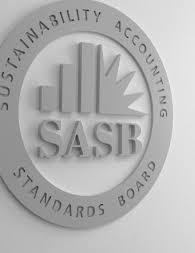Norges Bank Investment Management (NBIM) has asked the European Financial Reporting Advisory Group (EFRAG) to further encourage the use of the Sustainability Accounting Standards Board (SASB) standards in its guidance on materiality assessment for corporates looking to meet their duties under the EU Corporate Sustainability Reporting Directive (CSRD).
In a letter to the European Financial Reporting Advisory Group (EFRAG) last week, it said it would be helpful if the use of these standards could be encouraged “even further”, especially until the sector-specific European Sustainability Reporting Standards (ESRSs) are developed.
This week the Council agreed with the European Parliament to delay by two years the deadline for the adoption of the sector-specific standards.
According to the agreement reached between the two rulemakers, the Commission’s mandate is to adopt eight of the sector-specific standards “as soon as each is ready”, or at the latest by 2026.
EFRAG started working on these in 2022 but paused this work in the spring last year by direct request of the European Commission to prioritise other work on the implementation of the first set of sector-agnostic EU standards.
This work has included developing guides on materiality assessment and reporting value chain information, with EFRAG having published drafts of these in December for comment until 2 February.
In its feedback on the draft materiality assessment guidance, NBIM also said EFRAG could “further reinforce the non-prescriptive nature of the materiality assessment process”, seeming to consider that “the relatively detailed nature of the guidance” could suggest otherwise.
NBIM separately welcomed a reference to the importance of a due diligence process, adding that the investor “would suggest the insertion of a specific reference to risk-based prioritisation as the key underlying concept and driver of materiality assessment in the value chain”.
NBIM also suggested EFRAG add a statement “to clarify that disclosure of non-material information by reporting entities can hinder transparency and accountability, recognising the fact that it is unlikely that the over 800 data points included in the ESRS will all be material and decision-useful across all preparers”.
Value chain information
On EFRAG’s draft value chain-focussed guidance, NBIM said it welcomed a comment that companies do not need to disclose information regarding every actor in their value chain, and suggested this be given more prominence in the guidance.
NBIM also suggested EFRAG could provide guidance on the role that industry initiatives and similar data-sharing collaboration projects could play to support companies in overcoming some of the challenges linked to data availability in the value chain.
Read the digital edition of IPE’s latest magazine























